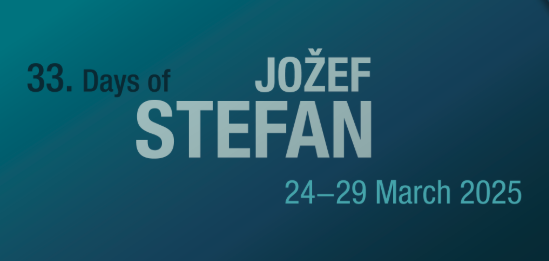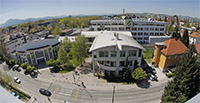-

Laboratory for Open Systems and Networks
Laboratory for Open Systems and Networks was established in 1992. The focus of our activities are research and development of information security, next generation networks, telecommunication technologies, components and integrated systems, and information society services and applications. The laboratory is implementing the research programme “Future internet technologies: concepts, architectures, services and socio-economic issues”. Research is also carried out in the Horizon Europe, Digital Europe, and Horizon 2020 programmes, and national projects.
-
Information security, privacy and the fight against cyber crime
Security research is performed from both a technical and socio-economic points of view. Research results include building blocks for cryptographic algorithms, algorithms for trust management, context-based security mechanisms, access control protocols, methods for user authentication and authorisation, models for cybersecurity evaluation, methods for critical infrastructure protection, and infrastructures for secure cross-border services. The most recent activities relate to AI-based security and quantum key distribution.
Majority of the activities is performed in the EU projects, such as SiQUID, DE4A, DEFENDER, CONCORDIA, COMPACT, eSENS, STORK 2.0, SI-PASS, eID4U, DIADEM, FAIN, DAIDALOS, ICE-CAR or ICE-TEL.
-
Next generation networks
The second field of research are concepts, architectures, and services of the next generation networks. The results include scenarios of future internet development, smart grids, infrastructures for first responders, dynamic energy consumption forecasting model, services for management of energy consumption, and collaboration platforms.
The activities were part of the EU projects, such as INDEPENDENT, RESONANCE, iFlex, Flex4Grid, EIFFEL, ALIPRO, BReATH, DAIDALOS, and NICE.
-
Technology Enhanced Learning
E-learning technologies have been one of the main areas of our research and development for many years. The results include brokerage platforms for exchange of learning material, smart spaces for learning, serious games (e.g. for digital forensics training), and cloud-based training platforms.
Many of the research activities were carried out in the EU funded projects, such as DIGIBLEND, GIRDA, EMPLOYID, iCamp, Elena, PROLEARN, UNIVERSAL, e4VET, SELPRAF, MERLAB, ICOPER, and OpenScout.
-

OPEN DAY 2025 AT JOŽEF STEFAN INSTITUTE
At the end of March each year, we commemorate the birthday of the remarkable Slovenian physicist Jožef Stefan as traditional Days of Jožef Stefan, known also as Stefan’s Days, spanning the entire week from 24.3. to 29.3.2025. The all-week program concludes with the traditional Open Day Event, on Saturday, 29 March, 2025, from 9 a.m. to 2 p.m. This event is organized with cooperation of […] Continue reading -

Available PhD Student Positions
The Laboratory for Open Systems and Networks at Jozef Stefan Institute is offering Ph.D. student positions. We invite candidates who are interested in research work in any of the following areas: Cybersecurity, Human-centered design of autonomous and AI-driven solutions for cybersecurity, Quantum-safe secure communications. The laboratory offers a stimulating, friendly and flexible work environment, access […] Continue reading -

TESTING OF A NEW BOARD GAME “INFINITY”
Within the on-going Erasmus+ project “DiGiBLEND | Improving adult digital literacy through innovative gamified blended learning”, we have developed a new and innovative approach to teaching and training basic digital skills for the target group of older adults. As the result we have developed a new board game “INFINITY” for the game-based assessment of the […] Continue reading

Laboratory for open systems and networks
- Jamova cesta 39
- 1000 Ljubljana
- Slovenia
- +386 1 477 3900
- info@e5.ijs.si




